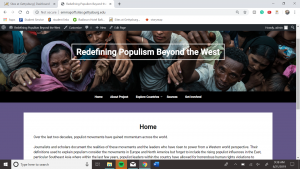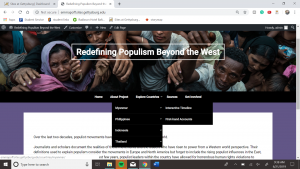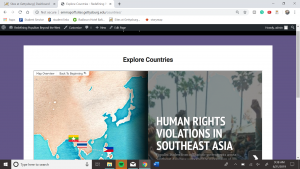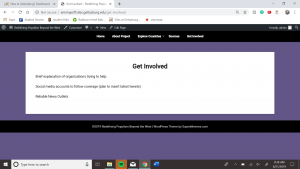Over the last eight weeks of this fellowship, my view on what can be included among the digital humanities has definitely changed. I thought the digital humanities was mainly websites and digital archives. I didn’t think it was possible to create multiple different sites or digital exhibits out of the digital humanities. I also didn’t know necessarily how papers and reviews could be transformed using digital tools. I believe the values of DH that I learned remain the same. I know of the importance of collaboration and openness of the web but, I don’t think I fully understood its benefits. Creating websites over papers that are locked away in academic institutions really helps the spread of information. The purpose of my own project centered around educating people on a topic they originally knew nothing about. Without the digital tools that I used during this fellowship, the information I was trying to communicate would not have reached the targeted audience I wanted to connect with. In addition to openness, I think that collaboration sets the digital humanities apart from regular papers and academic journals. I am limited in my own knowledge of the subject I have researched but I know with the help of other individuals I can extend the platform I have created to make sure more information can be shared.
I do think the community I centered myself around within the library definitely helped me form my own definition of digital humanities. But, even though my opinions were formed by the opinions of others, I did also read many articles discussing the digital humanities. I still feel that the library’s definition remains true. I don’t think simply submitting a document online can be considered digital humanities but, if you submitted the document in a way that allowed people to collaborate and extend the research then maybe there is some elements of digital humanities used. I still am a bit confused when trying to make decisions on what can be grouped under this term but, for now I’d like to learn about different projects in hopes that I can continue trying to shape my definition. The digital humanities serves as a platform to teach as well as present research to anyone willing to view it online. I am satisfied with what I made and how I feel it can benefit all internet users. I am grateful for the cohort I had the chance to work with and I hope to stay connected to such an amazing and supportive community. Thank you for this opportunity. I will miss seeing everyone for lunch discussions and workshops but, I know that this does not have to be the end.
Signing off for now,
Emma Poff



